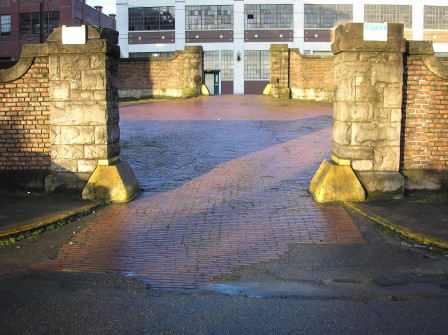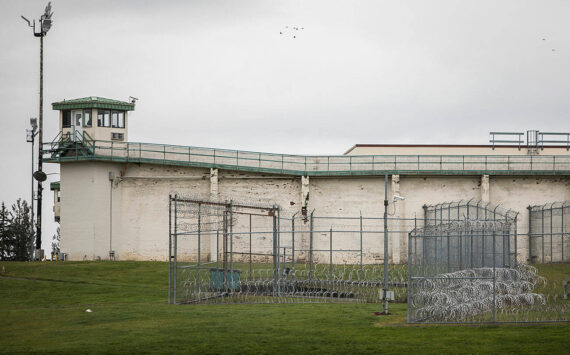By Morf Morford
Tacoma Daily Index
You don’t have to live in Tacoma very long to realize that Tacoma seems to be in a near constant identity crisis.
With one eye on preserving, updating or obliterating our past and the other on preparing for, fearing or avoiding the future, no wonder so many of us are a bit dazed.
Tacoma has never been very good at nostalgia. Yes, most of us love the grand old stone-block buildings of downtown, and who doesn’t love our seemingly endless collection of lovingly maintained craftsman homes – most of them in their original configurations?
But Tacoma never quite reached its aspirations as the city of destiny. In fact Tacoma could possibly be best described as an attempted city.
It’s not quite a suburb either. But we are certainly something beyond either of those. I don’t know about anyone else, but whenever I go out to an event or shopping or almost any gathering, I run into people I know.
It has been said that we are all six degrees of separation from anyone in the world. In Tacoma, it is more like two degrees of separation. Or even one.
Tacoma is far more like a community than a city. What is the difference?
Most people I know would say that Tacoma excels in those non-measurable, difficult to pin down or define set of associations, shared memories and relationships, and yes, annoyances, that accumulate over time. Community is possibly the ultimate intangible – but it is what makes a place a home. It is the difference between a partnership and a friendship.
A city is far easier to define; a city is a coalition of those doing business together in a centralized location. Money and power are the defining features of a city – who has it, who wants it and what is being done to protect it. Cities, for better or worse, are centers of opportunity – either found or lost.
And Tacoma, like every city, has had many successes and far too many failures, scandals and catastrophes. One reader disagreed with a recent column here, http://www.tacomadailyindex.com/blog/tacoma-bedford- falls-or-pottersville/2440538/, describing Tacoma’s choices as the two extremes portrayed by the film “It’s a Wonderful Life.” He wrote “Tacoma hasn’t been Bedford Falls since 1880 or before. Hahaha.”
I rarely know how to interpret “Hahaha” with a statement. Does that mean he is laughing at me? Or at the absurdity of his own statement?
Obviously not much existed (as a city I mean) before 1880. To put it mildly, the 1880s and ‘90s were a wild time in Tacoma, with fortunes gained – and lost – murder, sleaze and corruption were rampant. Corporate bosses, mostly from the railroads or the timber companies, ruled with little to no accountability, lots of impunity and deaths of workers were common and only newsworthy if the numbers were high.
Tacoma, like most early cities on the west coast, was virtually (and sometimes literally) defined by railroad barons, real estate manipulators and lumber magnates. Downtown Tacoma was dense with sleazy bars, prostitutes, petty crime and murder.
Tacoma’s wealthy had their mansions (most still exist) while the poor lived in long gone shantytowns and shacks.
Even then, Tacoma was an epicenter of what we would now call ‘human trafficking.’ Kidnapping and getting “Shanghaied” was a constant danger in the downtown area.
Tacoma back then was a hotbed of racism. The expulsion of the Chinese is one of the darkest blights of Tacoma history – but Tacoma also had a thriving KKK community until the 1920s – if not later.
The expulsion of the Japanese community in 1942 (and the confiscation of their prime property above what is now UWT) and the 1990 Puyallup Tribal settlement of $162 million in cash, real estate, and economic development programs in exchange for abandoning claims to some 18,000 acres of land on their historic reservation on Commencement Bay (the second largest Native legal claims settlement in US history) are only a few examples of this particularly ugly strand of Tacoma’s historic identity.
Downtown Tacoma’s reputation was so seedy that downtown was termed “off limits” by the local military bases until long after World War II.
The air was literally suffocating with the sulphorous (and toxic) haze of the lumber and pulp mills, the ASARCO smelter was pumping arsenic and lead into the atmosphere on a near constant basis.
The arsenic and lead saturated molten slag was dumped into Commencement Bay routinely. The newly developed peninsula of Point Defiance Park is made almost entirely of this toxic waste.
What most of us now appreciate as the Ruston Way shoreline, was, not that long ago, an extended row of dilapidated foul-smelling pulp and lumber mills – either abandoned or still oozing their toxic waste into our water and atmosphere.
This was no Bedford Falls – this was Pottersville on steroids.
Many other Northwest cities described Tacoma as “the armpit of the Northwest”.
Tacoma has come a long way since then. And we are not going back.
Many of us in Tacoma know all too well the legacy of corruption and corporate poisoning of our communities. The civic boosters who promoted (and profited from) the smell and ruination of our land used to describe it as “the smell of money”.
Yes, it was. It was the smell of money in the form of real estate values and business reputations being burned at the altar of short-term profits from exploitation.
The irresistible calls never seem to stop for projects that stain our civic reputation (like the Tacoma Northwest Detention Center – cleverly named “Seattle Field Office” to keep people from knowing that it is in Tacoma) or threaten our communities and environment (like the proposed and then abandoned world’s largest methanol plant).
Global corporations continue to dangle glistening and ever elusive promises of jobs and development in front of our city officials and business leaders. And they keep listening.
The challenge is to find industries or businesses that we will be proud of fifty years from now.
We just have to decide who we are, and yes, what we want to be when we grow up.










